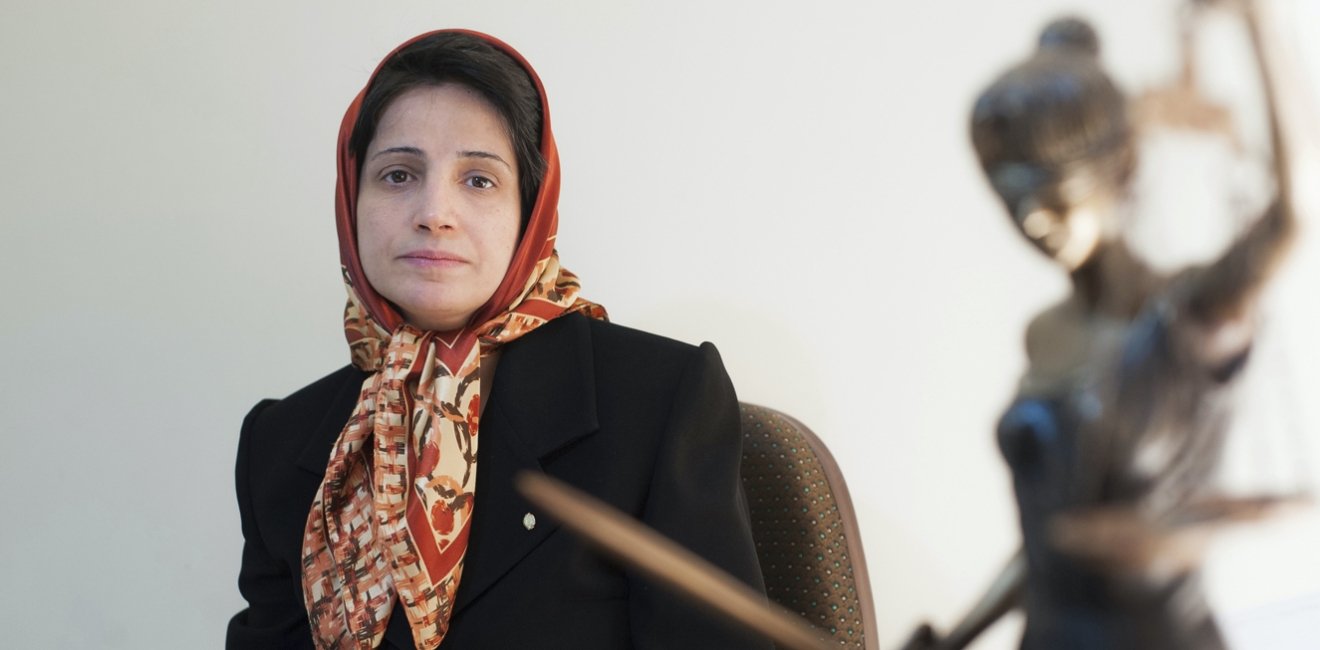
A blog of the Middle East Women's Initiative
The Biden Administration should place, preferably at the top of its agenda, the issue of human rights violations in Iran, including the arbitrary detentions of men and women political activists, members of religious minorities, and dual nationals.
The Biden Administration and Iranian officials are bound, sooner or later, to open discussions, directly or indirectly, to discuss the myriad issues that divide them: the revival of the nuclear agreement known as the JCPOA, from which the US withdrew under the Trump Administration, the many sanctions the US has imposed on Iran that crippled the Iranian economy, American concerns over Iran’s role in the Middle East region, and Tehran’s concerns over American policy towards Iran. The Biden Administration should place, preferably at the top of its agenda, the issue of human rights violations in Iran, including the arbitrary detentions of men and women political activists, members of religious minorities, and dual nationals. Such an initiative, led by the United States, will be all the more effective if it is joined by and coordinated with America’s European partners.
The US and the Europeans should insist on the release of their dual nationals imprisoned in Iran and must make clear that women’s rights are an integral part of human rights, and that the West cares for gender parity and equality. The Administration should ask for the release from prison of women human rights activists such as Nasrin Sotoudeh and many others. Currently among the women imprisoned and serving long sentences in Iran are human rights lawyers, women workers, women who dared the government by removing their headscarves in public, women who came out into the streets of Iranian cities in recent years to protest economic and social hardship as well as violence against women, and the death penalty, and also for equal rights. A recent law to criminalize violence against women still needs to be fully implemented by the government. The newly established White House Gender Policy Council should consult with women like Nasrin Sotoudeh and other women activists in both Iran and the diaspora. It is these women, active on the ground, who best understand what needs to be done and the kind of support they need
It is not only the problem of women’s rights in Iran that deserves the Biden Administration’s attention. Where women’s rights, human rights, and gender equality are concerned, the Biden team should not differentiate between friend and foe, but apply the same policy to all countries across the MENA region. Democratic reforms and respect for women’s rights and human rights should once again be a pillar of American foreign policy.
Author


Middle East Program
The Wilson Center’s Middle East Program serves as a crucial resource for the policymaking community and beyond, providing analyses and research that helps inform US foreign policymaking, stimulates public debate, and expands knowledge about issues in the wider Middle East and North Africa (MENA) region. Read more


Middle East Women's Initiative
The Middle East Women's Initiative (MEWI) promotes the empowerment of women in the region through an open and inclusive dialogue with women leaders from the Middle East and continuous research. Read more

Explore More in Enheduanna
Browse Enheduanna
Women are the Catalysts for Change in Lebanon

How Education Can Empower Young Women in MENA


